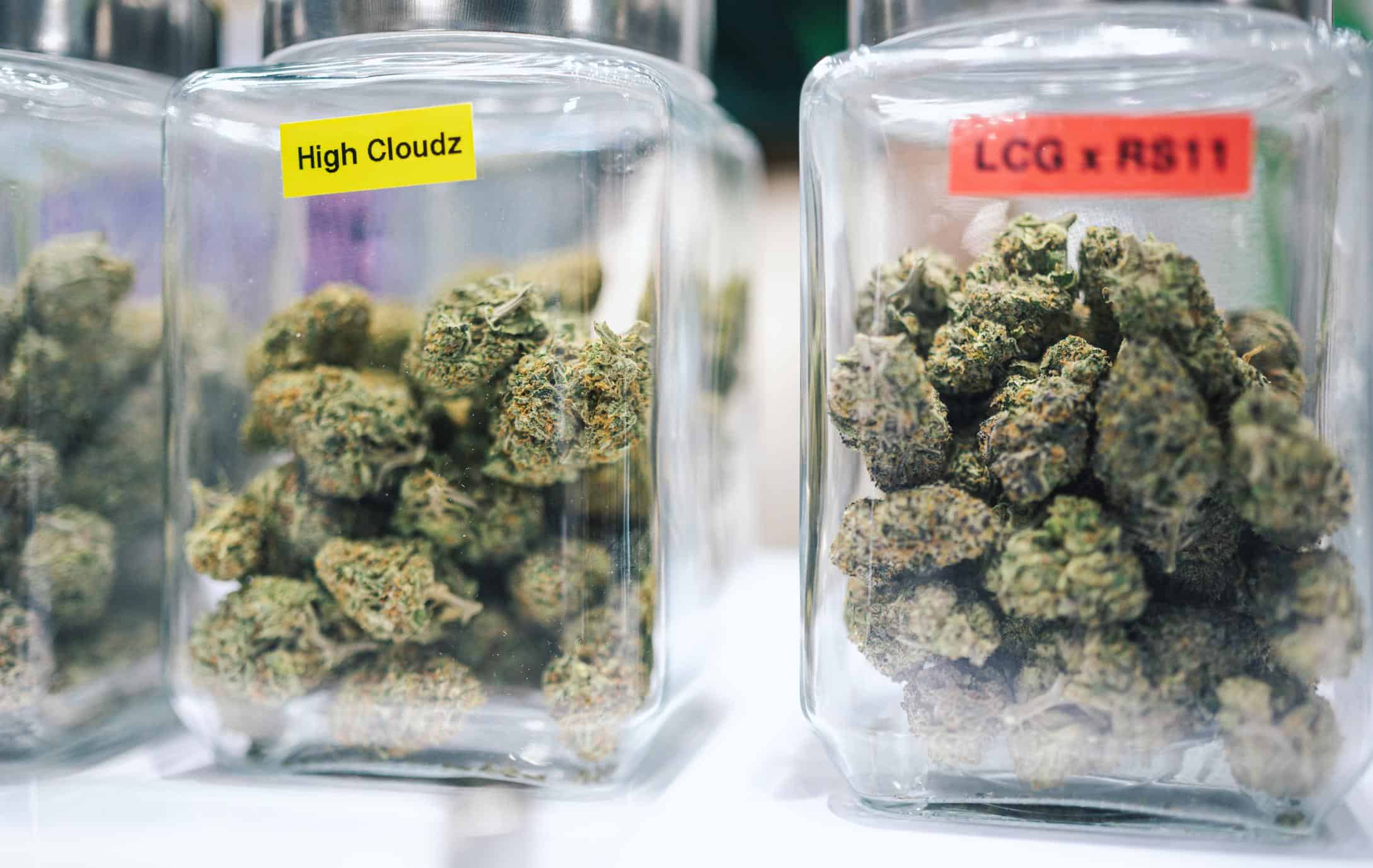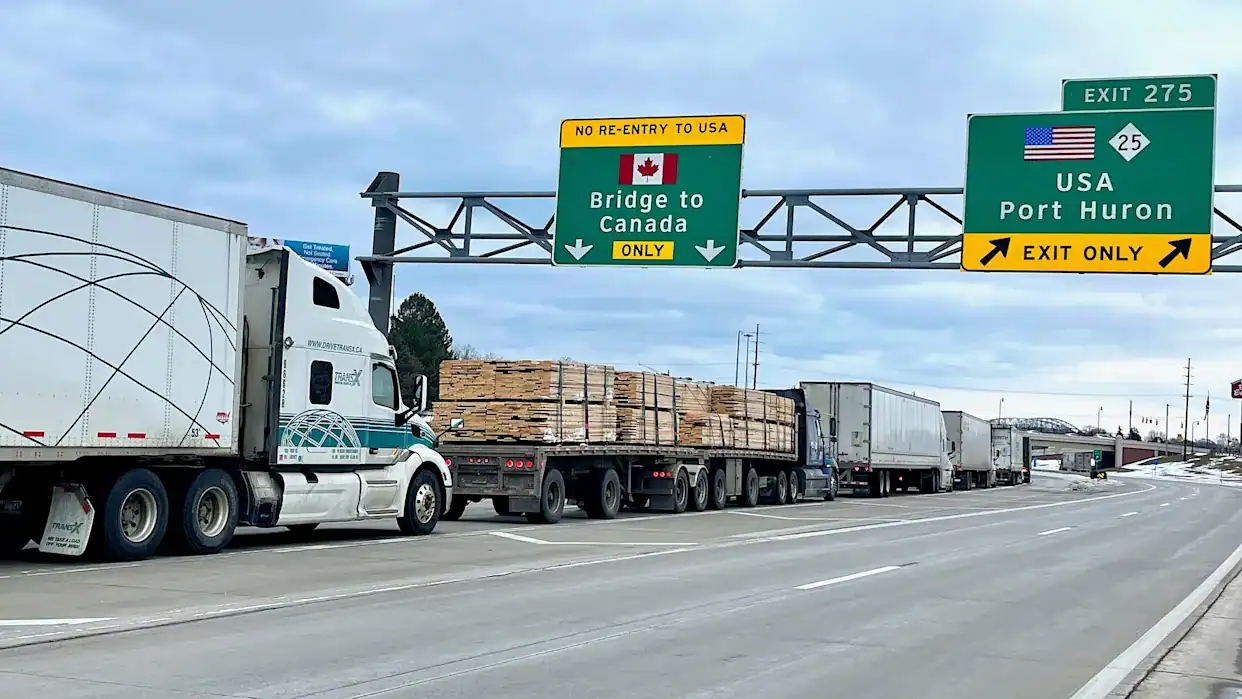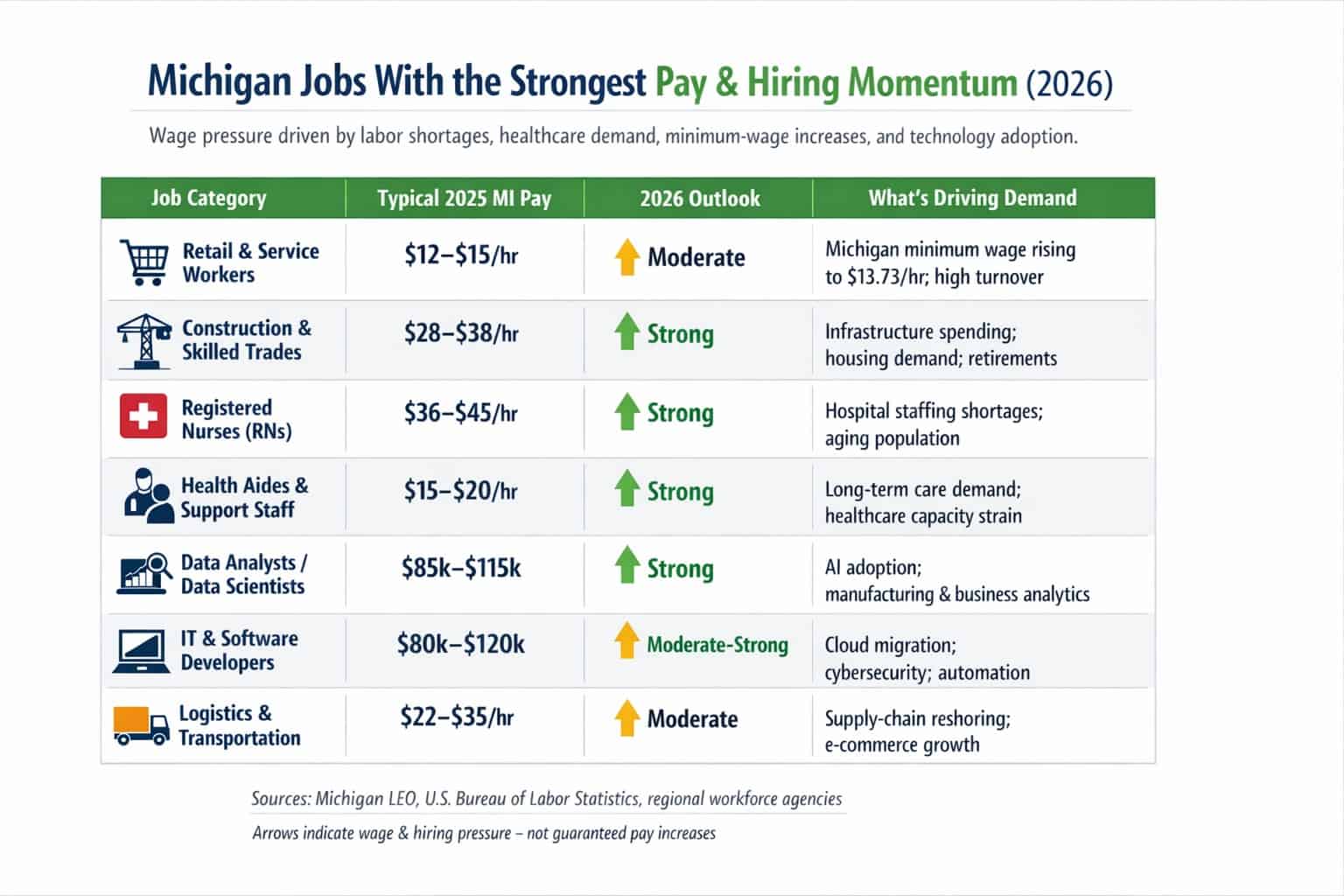COLUMBUS – In November 2023, 57% of voters in Ohio voted for Issue 2, a ballot initiative which legalized adult recreational marijuana use and tasked the Ohio Departments of Commerce and Development with implementing a legal recreational cannabis industry in the state.
Like most other states that have legalized cannabis for recreational use, Ohio allows local jurisdictions to enact ordinances to prohibit or limit the operation of adult-use cannabis businesses within their boundaries.
Figure 1. Map of Ohio Jurisdictions That Have Enacted a Moratorium for Adult Use Marijuana Operators

Local Prohibition Statute and Host Community Fund
The incorporation of a local business prohibition statute is common among the 24 states that have legalized adult cannabis use for recreational purposes. Only four states out of these 24—New Mexico, Rhode Island, Maryland, and Minnesota—do not give localities the power to prohibit businesses, although these states give localities the right to enact reasonable restrictions on time, place and manner of consumption. The extent to which localities opt out of the legal recreational market varies.
For instance, in Michigan 73% of municipalities (1,300 out of 1,773) opted out. In comparison, the 135 Ohio municipalities that have passed moratoriums as of July 2, 2025, represent only a small fraction (just over 6%) of the 924 incorporated municipalities and 1,307 townships in the state of Ohio, according to a study done by the Moritz College of Law.
Ohio’s Issue 2 enacted Ohio Revised Code Section 3780.25, under which localities can enact ordinances prohibiting the operation of adult-use businesses, although they may not prohibit the operation of existing medical cannabis operators that are already located within their jurisdiction. Additionally, localities cannot pass ordinances prohibiting or limiting marijuana-related research conducted at state universities, levy a tax, fee, or charge on adult-use operators that are not being levied on other businesses within the municipal corporation or township, and they cannot prohibit or limit home grow, or any other activity authorized under Chapter 3780.
If a dispensary license is issued by the Division of Cannabis Control for a locality that does not have a moratorium in place, the locality has 120 days to enact an ordinance prohibiting the operations of the dispensary. Upon passage of the ordinance, the dispensary has 60 days to cease operations, or begin the process of initiating a petition to operate that would have to be voted on at the next general election.
Host Community Fund
While the current law gives communities the power to prohibit adult-use cannabis operators from their jurisdictions, it also created an incentive for municipalities to allow operators by establishing the Host Community Fund. Thirty-six percent of the recreational cannabis excise tax revenue collected by the state will be directed to the Host Community Fund, which is then distributed to municipal corporations or townships that have adult use dispensaries. This revenue, along with the local sales tax collected from the sale of recreational marijuana, can be used by communities to fund their own priorities.[3]
The State of Local Moratoriums
As of July 2, 2025, 135 Ohio municipal corporations or townships have passed moratoriums prohibiting adult-use cannabis businesses. We were able to collect the language of 118 of these moratoriums.[4] The 121 jurisdictions with active moratoriums represent just over 15% of Ohio’s population, with the average population of these localities hovering just under 15,000 residents.
Figure 2. Ohio Moratoriums by Jurisdiction’s Population Size
Of the 118 ordinances we collected, 115 jurisdictions enacted full moratoriums for all types of adult use operators. As shown in Table 1, 80 of these jurisdictions have left the length of the moratorium undefined, while the other jurisdictions averaged a moratorium of just over a year—107 are a full year or longer, while five are six months or shorter. A handful of jurisdictions that enacted adult-use moratoriums already have operating medical marijuana establishments.
Table 1. Ohio Jurisdictions That Have Enacted a Moratorium for Adult Use Marijuana Operators
Please note that jurisdictions that have a moratorium ending date in the past will remain marked as active until we are able to confirm whether or not they have been extended. We will update the status and/or ending date once we receive confirmation. If you are aware of a moratorium not included here, you can help us keep this resource up-to-date by sending a notification to Research Associate Dexter Ridgway.
| Place | Moratorium Active? | Moratorium Length | Date Enacted | Ending Date | Has An Active Marijuana Operator? | Population |
|---|---|---|---|---|---|---|
| Allen Township | Yes | Indeterminate | 12/20/2023 | Indefinite | No | 2,754 |
| Amanda Township | Yes | Unable to obtain document | Unable to obtain document | Unable to obtain document | No | 1,036 |
| Ashland | Yes | Indeterminate | 1/2/2024 | Indefinite | No | 19,225 |
| Austintown Township | No | 275 days | 4/1/2024 | 1/1/2025 | No | 36,049 |
| Avon Lake | Yes | Indeterminate | 12/19/2023 | Indefinite | No | 25,206 |
| Barberton | Yes | Indeterminate | 12/18/2023 | Indefinite | No | 25,191 |
| Beachwood | Yes | Indeterminate | 1/9/2024 | Indefinite | No | 14,040 |
| Beavercreek | Yes | Indeterminate | 11/27/2023 | Indefinite | Dual Use Dispensary | 46,549 |
| Bellefontaine | Yes | Indeterminate | 2/19/2024 | Indefinite | No | 14,115 |
| Bellville | Yes | 12 months | 1/9/2024 | 1/31/2025 | No | 1,963 |
| Bethel | Yes | Indeterminate | 1/11/2024 | Indefinite | No | 2,620 |
| Blanchard Township | Yes | Indeterminate | 12/12/2023 | Indefinite | No | 1,130 |
| Blendon Township | Yes | Indeterminate | 6/18/2024 | Indefinite | No | 10,152 |
| Bloominggrove Township | Yes | Indeterminate | 3/11/2024 | Indefinite | No | 1,295 |
| Brunswick | Yes – Retail dispensaries and cultivators | Indeterminate | 12/18/2023 | Indefinite | No | 35,426 |
| Canaan Township | Yes | Indeterminate | 12/29/2023 | Indefinite | No | 900 |
| Canal Winchester | Yes | 603 days | 5/7/2024 | 12/31/2025 | No | 9,107 |
| Canfield Township | Yes | 360 days | 8/13/2024 | 8/8/2025 | No | 16,944 |
| Carlisle | Yes | 905 days | 11/28/2023 | 5/21/2026 | No | 5,501 |
| Cass Township | Yes | Indeterminate | 8/12/2024 | Indefinite | No | 1,599 |
| Centerville | Yes | Indeterminate | 11/20/2023 | Indefinite | No | 24,240 |
| Chillicothe | Yes | 12 months | 1/13/2025 | 1/13/2026 | Dual Use Dispensary | 22,059 |
| Circleville | Yes | 12 months | 8/6/2024 | 8/6/2025 | No | 13,927 |
| Clayton | Yes | Indeterminate | 12/18/2023 | Indefinite | Processor | 13,310 |
| Clear Creek Township | Yes | Indeterminate | 7/3/2024 | Indefinite | No | 2,217 |
| Colerain Township | Yes | Indeterminate | 10/24/2023 | Indefinite | No | 59,239 |
| Copley Township | Yes | Indeterminate | 5/20/2024 | Indefinite | No | 18,403 |
| Delaware | Yes | 2 years | 9/9/2024 | 9/9/2026 | Dual Use Dispensary | 41,302 |
| Delaware Township | Yes | Indeterminate | 12/20/2023 | Indefinite | No | 1,208 |
| Eaton | Yes | Indeterminate | 1/15/2024 | Indefinite | No | 8,375 |
| Elyria | No | 12 months | 6/3/2024 | 6/3/2025 | Dual Use Dispensary | 52,656 |
| Etna Township | Yes | Unable to obtain document | Unable to obtain document | Unable to obtain document | No | 18,896 |
| Euclid | Yes | 6 months | 3/3/2025 | 9/3/2025 | Dual Use Dispensary (2), Processor, Cultivator | 49,692 |
| Fairborn | Yes | 426 days | 7/1/2024 | 8/31/2025 | No | 34,510 |
| Fairfield | No | 310 days | 12/4/2023 | 10/9/2024 | No | 44,907 |
| Findlay | Yes | 12 months | 8/6/2024 | 8/6/2025 | No | 40,313 |
| Forest Park | Yes | Unable to obtain document | Unable to obtain document | Unable to obtain document | No | 20,189 |
| Franklin | Yes | Indeterminate | 12/18/2023 | Indefinite | No | 11,690 |
| Franklin Township (Morrow) | Yes | Indeterminate | 12/11/2023 | Indefinite | No | 1,609 |
| Franklin Township (Richland) | Yes | Indeterminate | 4/1/2024 | Indefinite | No | 1,679 |
| Granger Township | Yes | Indeterminate | 6/24/2024 | Indefinite | No | 4,556 |
| Granville | Yes | Indeterminate | 5/1/2024 | Indefinite | No | 5,946 |
| Granville Township | Yes | Indeterminate | 5/8/2024 | Indefinite | No | 10,244 |
| Green | Yes | 12 months | 2/27/2024 | Indefinite | No | 27,475 |
| Greenville | Yes | Indeterminate | 12/19/2023 | Indefinite | No | 12,786 |
| Hamilton | Yes | Indeterminate | 12/7/2023 | Indefinite | No | 63,399 |
| Hamler | Yes | 571 days | 4/1/2024 | 12/31/2025 | No | 600 |
| Harmony Township | Yes | Indeterminate | 3/5/2024 | Indefinite | No | 2,610 |
| Holgate | Yes | 401 days | 11/25/2024 | 12/31/2025 | No | 1,061 |
| Hudson | Yes | Indeterminate | 12/12/2023 | Indefinite | No | 23,110 |
| Independence | Yes | Indeterminate | 6/11/2024 | Indefinite | No | 7,584 |
| Jackson Township | Yes | Indeterminate | 7/2/2024 | Indefinite | No | 3,700 |
| Jefferson Township | Yes | Indeterminate | 6/10/2024 | Indefinite | No | 4,905 |
| Jerome Township | Yes | Indeterminate | 7/2/2024 | Indefinite | No | 9,504 |
| Kent | No | Indeterminate | 1/17/2024 | Indefinite | Dual Use Dispensary | 28,215 |
| Kettering | Yes | 580 days | 11/28/2023 | 6/30/2025 | No | 57,862 |
| Kirtland | Yes – Retail dispensaries | Indeterminate | 12/18/2023 | Indefinite | No | 6,937 |
| Lakewood | No | 254 days | 11/20/2023 | 7/31/2024 | Dual Use Dispensary (2) | 50,942 |
| Lexington | Yes | Indeterminate | 1/16/2024 | Indefinite | No | 4,848 |
| Liberty Township | Yes | Indeterminate | 11/21/2023 | Indefinite | No | 43,999 |
| Lisbon | Yes | 12 months | 2/27/2024 | 2/27/2025 | No | 2,597 |
| Litchfield Township | Yes | Indeterminate | 3/14/2024 | Indefinite | No | 3,215 |
| Logan | Yes | Unable to obtain document | Unable to obtain document | Unable to obtain document | Dual Use Dispensary | 7,296 |
| Loveland | Yes | Indeterminate | 12/13/2016 | Indefinite | No | 13,307 |
| Lucas | Yes | Indeterminate | 5/21/2024 | Indefinite | No | 589 |
| Lyndhurst | Yes | Indeterminate | 5/19/2025 | Indefinite | No | 14,050 |
| Madison Township | Yes | Indeterminate | 3/4/2024 | Indefinite | No | 11,106 |
| Marion Township | Yes | Indeterminate | 1/10/2024 | Indefinite | No | 3,097 |
| Marysville | Yes | Indeterminate | 2/26/2024 | Indefinite | No | 25,571 |
| Mason | Yes | Unable to obtain document | Unable to obtain document | Unable to obtain document | No | 34,792 |
| Maumee | Yes | 24 months | 8/21/2023 | 8/21/2025 | No | 13,896 |
| Medina Township | Yes | Indeterminate | 2/29/2024 | Indefinite | No | 9,183 |
| Miamisburg | Yes | Indeterminate | 12/5/2023 | Indefinite | No | 19,923 |
| Middleburg Heights | Yes | Unable to obtain document | Unable to obtain document | Unable to obtain document | No | 16,004 |
| Mifflin Township (Richland) | Yes | Indeterminate | 7/8/2024 | Indefinite | No | 6,106 |
| Mohican Township | Yes | Indeterminate | 12/11/2023 | Indefinite | No | 2,078 |
| Monroe | No | 9 months | 1/9/2024 | 10/9/2024 | Dual Use Dispensary (4), Processor, Cultivator | 15,412 |
| Monroe Township | Yes | Indeterminate | 2/21/2024 | Indefinite | No | 2,721 |
| Montgomery Township | Yes | Indeterminate | 12/6/2023 | Indefinite | No | 2,749 |
| Montville Township | Yes | Indeterminate | 2/13/2024 | Indefinite | No | 13,131 |
| Moraine | Yes | Unable to obtain document | Unable to obtain document | Unable to obtain document | No | 6,393 |
| Napoleon | Yes | 351 days | 1/15/2024 | Indefinite | No | 8,862 |
| New Albany | Yes | Indeterminate | 8/6/2024 | Indefinite | No | 10,825 |
| New Franklin | No | 12 months | 3/6/2024 | 3/6/2025 | No | 13,877 |
| North Canton | Yes | Unable to obtain document | Unable to obtain document | Unable to obtain document | No | 17,842 |
| North Olmsted | Yes | Indeterminate | 12/7/2023 | Indefinite | No | 32,442 |
| North Royalton | Yes | Indeterminate | 12/5/2023 | Indefinite | No | 31,322 |
| Northfield | Yes | Unable to obtain document | Unable to obtain document | Unable to obtain document | No | 3,541 |
| Northwood | Yes | Unable to obtain document | Unable to obtain document | Unable to obtain document | No | 5,160 |
| Norton | No | 515 days | 12/11/2023 | 6/18/2025 | No | 11,673 |
| Obetz | Yes | 493 days | 3/25/2024 | 7/31/2025 | No | 5,489 |
| Olmsted Falls | Yes | 743 days | 12/19/2023 | 12/31/2025 | No | 8,582 |
| Ontario | Yes | Indeterminate | 3/6/2024 | Indefinite | No | 6,656 |
| Orange | Yes | Indeterminate | 1/10/2024 | Indefinite | No | 3,421 |
| Orange Township | Yes | Indeterminate | 12/14/2024 | Indefinite | No | 1,301 |
| Oregon | Yes | Unable to obtain document | Unable to obtain document | Unable to obtain document | No | 19,950 |
| Painesville | No | 365 days | 12/4/2023 | 12/20/2024 | Dual Use Dispensary | 20,312 |
| Pataskala | Yes | Unable to obtain document | Unable to obtain document | Unable to obtain document | No | 17,886 |
| Perry Township | Yes – Retail dispensaries | Indeterminate | 12/12/2023 | Indefinite | No | 8,862 |
| Perrysburg | Yes | 519 days | 5/7/2024 | 10/8/2025 | No | 25,041 |
| Plymouth Township | Yes | Indeterminate | 4/4/2024 | Indefinite | No | 1,981 |
| Portage Township | Yes | Unable to obtain document | Unable to obtain document | Unable to obtain document | No | 734 |
| Powell | Yes | 727 days | 6/20/2024 | 6/17/2026 | No | 14,163 |
| Reily Township | Yes | Indeterminate | 4/2/2024 | Indefinite | No | 2,660 |
| Richmond Heights | No | 305 days | 12/19/2023 | 10/19/2024 | No | 10,801 |
| Richfield Township (Summit) | Yes | Unable to obtain document | Unable to obtain document | Unable to obtain document | No | 6,437 |
| Riverside | Yes | 640 days | 12/21/2023 | 9/21/2025 | Dual Use Dispensary (2) | 24,474 |
| Salem | Yes | Indeterminate | 1/16/2024 | Indefinite | No | 11,915 |
| Seville | No | 6 months | 7/15/2024 | 1/15/2025 | No | 2,335 |
| Sharon Township | Yes | Indeterminate | 8/12/2024 | Indefinite | No | 9,006 |
| Shelby | Yes | Indeterminate | 2/20/2024 | Indefinite | No | 9,282 |
| Springboro | Yes | Indeterminate | 12/7/2023 | Indefinite | No | 19,062 |
| Springfield Township | Yes | Indeterminate | 3/18/2024 | Indefinite | No | 11,064 |
| Stow | No | 6 months | 9/13/2024 | 3/13/2025 | No | 34,483 |
| Strongsville | Yes | Indeterminate | 3/18/2024 | Indefinite | No | 46,491 |
| Sycamore Township | Yes | Indeterminate | 12/5/2023 | Indefinite | No | 19,563 |
| Trotwood | Yes | 758 days | 12/4/2023 | 12/31/2025 | No | 23,070 |
| Troy | No | 457 days | 8/7/2023 | 11/6/2024 | No | 26,305 |
| Troy Township | Yes | Indeterminate | 1/23/2024 | Indefinite | No | 1,101 |
| Union Township | Yes | Unable to obtain document | Unable to obtain document | Unable to obtain document | No | 1,881 |
| Van Buren | Yes | Unable to obtain document | Unable to obtain document | Unable to obtain document | No | 1,024 |
| Vandalia | Yes | Indeterminate | 12/4/2023 | Indefinite | No | 15,209 |
| Vermilion | No | 253 days | 4/22/2024 | 12/31/2024 | No | 10,659 |
| Washington Township (Montgomery) | Yes | Indeterminate | 11/20/2023 | Indefinite | No | 61,682 |
| Washington Township (Hancock) | Yes | Unable to obtain document | Unable to obtain document | Unable to obtain document | No | 4,353 |
| Washington Township (Richland) | Yes | Indeterminate | 2/15/2024 | Indefinite | No | 6,622 |
| Waynesville | Yes | Indeterminate | 12/18/2023 | Indefinite | No | 2,669 |
| Weller Township | Yes | Indeterminate | 3/19/2024 | Indefinite | No | 1,884 |
| West Carrollton | Yes | 839 days | 12/12/2023 | 3/30/2026 | No | 13,129 |
| West Chester Township | Yes | Indeterminate | 1/9/2024 | Indefinite | No | 64,830 |
| Westerville | No | 203 days | 6/18/2024 | 1/7/2025 | No | 39,190 |
| Westfield Township | Yes | Indeterminate | 4/1/2024 | Indefinite | No | 2,632 |
| Westlake | Yes | Indeterminate | 12/21/2023 | Indefinite | No | 34,228 |
| Whitehouse | Yes | Indeterminate | 3/22/2018 | Indefinite | No | 4,990 |
| Xenia | Yes | Indeterminate | 1/13/2024 | Indefinite | No | 25,441 |
The moratoriums are generally brief and often describe the need to ensure “public peace, health, safety, and welfare of [the locality’s] citizens.” The moratoriums also often cite the need for time to review current ordinances and identify any conflicting laws with state laws legalizing marijuana, or to wait for lawmakers in the Ohio General Assembly to revise Issue 2 before making any changes to their own code. Multiple jurisdictions have indicated an intent to actively study current law and create recommendations for their locality once the final state rules for the adult-use recreational industry are adopted.
Table 2. Stated Purpose and Intent of Local Moratoriums
| Purpose is to Preserve Public Health | Waiting for Full State Rules | City Council Actively Studying/Drafting Law Recommendations | City Can Shorten/Extend Moratorium |
|---|---|---|---|
| 82 | 50 | 45 | 31 |
Enduring Consideration for Localities
While approaching a recreational cannabis market carefully might be prudent, localities that prohibit adult-use operators are foregoing potentially significant tax revenue stemming from cannabis businesses being located within their boundaries. Though Ohio tax revenues will not begin to accrue until the second half of 2024, revenues soon thereafter are forecasted to be considerable.[5] In addition to money allocated through the Host Community Fund, localities with active adult-use operators will generate local sales tax revenue that can be used for purposes specific to the community.
Moratoriums also limit opportunities for local entrepreneurs seeking to enter the adult-use market as well as possible employment prospects for local residents. For instance, according to some reports, Michigan’s cannabis industry has created 45,000 full-time positions.[6] Because cannabis businesses advance economic development in myriad ways, municipalities and townships considering moratoriums need to weigh not only public health and public safety concerns, but also the potential benefits of economic development, job creation, and tax revenue.
Lastly, localities should consider the possibility that prohibiting adult-use operators could have the unintended effect of increasing efforts to access cannabis through other means by local residents. Localities cannot make cannabis possession or use or even home grow illegal, and some local citizens are likely to seek out cannabis despite local bans through home grow efforts, or by traveling to nearby localities to find legal stores, or by turning to illicit markets to fill the void. Localities should continuously examine whether public health and public safety concerns are best served through local prohibitions or through well-crafted regulatory efforts.







